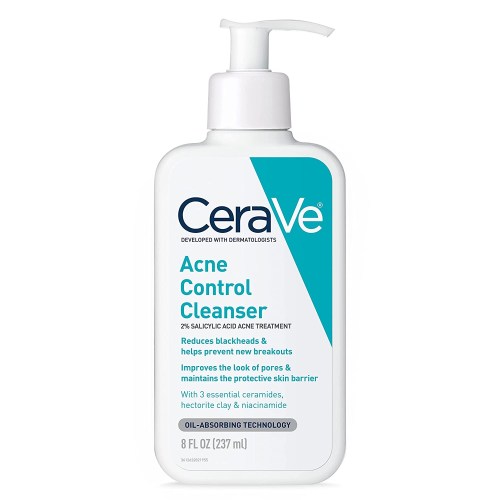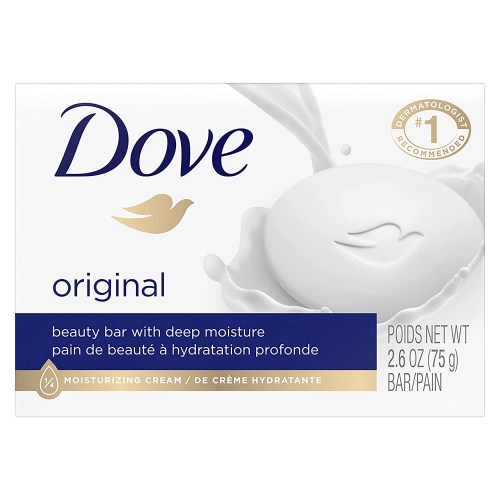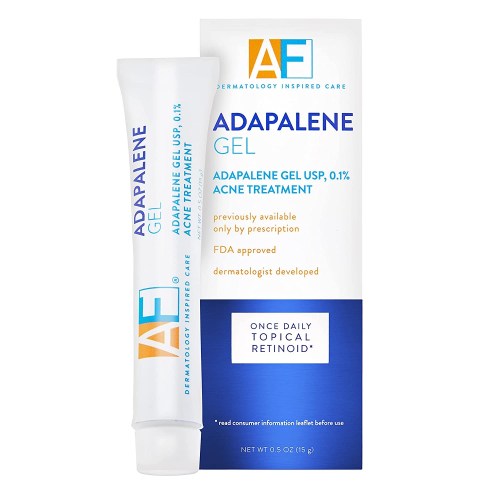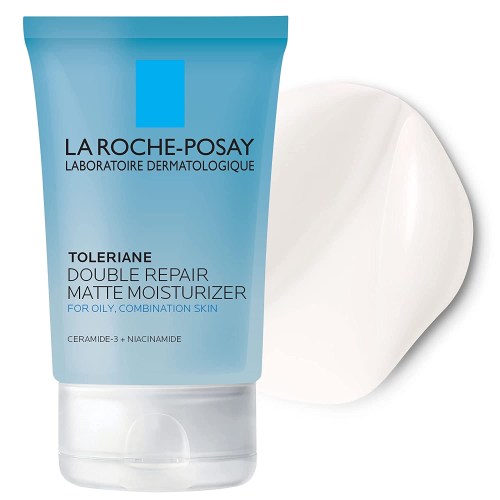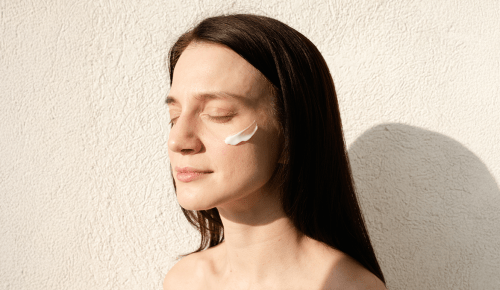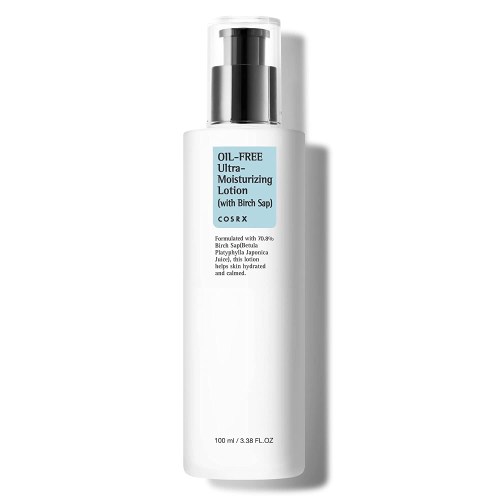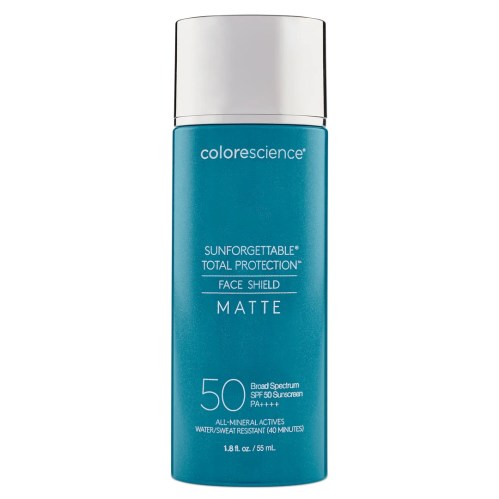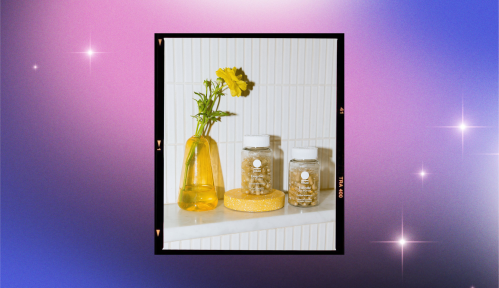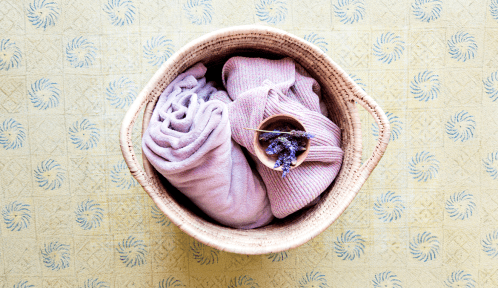Our editors independently select these products. Making a purchase through our links may earn Well+Good a commission
Theoretically, winter should serve as a reprieve from oily skin. Drier air and less sweat mean your pores will simmer down and stop making their own over-the-top moisturizer—right? Not quite, explains Marisa Garshick, MD, a board-certified dermatologist in New York City.
Experts in This Article
board-certified dermatologist at Medical Dermatology and Cosmetic Surgery in New York
“Since oily skin is a skin type, it refers to skin that naturally produces more sebum or oil and has a genetic component, regardless of environmental or external factors such as a change in weather or season,” says Dr. Garshick. And though some people may find their skin is less oily in the winter, others may find the opposite. “The winter weather with cold, harsh temperatures and dry indoor heating can strip the skin of its natural oils, which can actually trigger the skin to produce more oil, which is why some people with oily skin may find it worsens in the winter months.”
It’s important to use ingredients that help you manage oil production, but you have to find a balance. Overdoing it can overdry your skin and cause irritation and possibly more oil production.
“Since some of the ingredients used to address oily skin including salicylic acid or retinoids can be drying on the skin, it is always important to use these active ingredients with caution in the winter months,” says Dr. Garshick. “Certainly, they can still be used but some people may find they need to decrease the frequency of use to minimize the potential for dryness or irritation. If you are experiencing any redness or irritation, it is important to temporarily stop using a specific product or ingredient to allow the skin to recover.”
4 ingredients your oily winter skin routine should have
1. Salicylic acid
“Salicylic acid is a beta-hydroxy acid that helps to unclog pores and reduce oil, making it a great option for oily skin even in the winter months,” says Dr.Garshick. “It can be incorporated into cleansers, serums, creams, sprays, lotions, and more to help address oily skin.”
2. Retinoids
“Retinoids, often used to help prevent breakouts, are a great option for those with oily skin as it helps to regulate skin cell turnover, preventing the pores from becoming clogged and helping to reduce the appearance of pores as well,” says Dr. Garshick.
3. Niacinamide
“Niacinamide can be a great option for oily skin, especially in the winter months, as it has been found to regulate oil production, while being gentle on the skin, calming inflammation, and helping to address hyperpigmentation,” says Dr. Garshick. “It also works to support ceramide production, helping to support the skin barrier.”
4. Lightweight moisturizers
Although you may want to avoid moisturizers Dr. Garshick says they’re non-negotiable. “Not moisturizing the skin can lead to increased dryness which can trigger more oil production,” she says. Just avoid thick and heavy creams or ointments and look out for the following ingredients: “Hyaluronic acid, a humectant to draw moisture in, and ceramides, to help support the skin barrier, are also important for those with oily skin to help keep moisture in and prevent the skin from becoming dry and irritated,” she says.
7 best products to manage oily winter skin
CeraVe Acne Control Cleanser — $14.00
“This acne wash contains 2 percent salicylic acid to help reduce breakouts and gently exfoliate the skin in addition to oil-absorbing hectorite clay to reduce clogged pores,” says Dr. Garshick. “It’s also formulated with niacinamide and ceramides, it won’t leave the skin feeling dry or irritated.”
Dove Beauty Bar — $2.00
“Great for all skin types, including those with oily skin, this is a great option for someone who prefers to use a bar soap as it won’t leave the skin feeling dry or irritated,” says Dr. Garshick. “It contains one-quarter moisturizing cream to nourish and hydrate the skin.”
AcneFree Adapalene Gel — $10.00
“This retinoid, previously available by prescription only, is a great option for those with oily skin and those who are breakout prone,” says Dr. Garshick. “It is gentle on the skin, especially when compared to prescription retinoids, and oil-free and fragrance-free making it a great option even in the winter months.”
Charlotte Tilbury Glow Toner — $19.00 to $55.00
“Containing niacinamide and hyaluronic acid in addition to prickly pear extract, this acid-free exfoliating toner helps to address oily skin and reduces the appearance of the pores, while still being gentle on the skin,” says Dr. Garshick. “This makes it a great option all year round, but especially in the winter months.”
La Roche Posay Double Repair Matte Moisturizer — $21.00
“This oil-free moisturizer is especially good for those with oily skin as it hydrates and moisturizes the skin, but absorbs easily into the skin without leaving the skin looking shiny,” says Dr. Garshick. “It supports the skin barrier as it contains glycerin, ceramides, and niacinamide in addition to La Roche Posay’s prebiotic thermal spring water. It has a mattifying effect, improving the overall appearance of oil and pores.”
CosRx Oil-Free Ultra Moisturizing Lotion — $18.00
“This lightweight lotion contains birch sap and allantoin helping to hydrate and soothe the skin without clogging the pores,” says Dr. Garshick. “It is a great option for those with oily or combination skin and can be used one to two times daily.”
Colorescience Sunforgettable Total Protection Face Shield Matte — $42.00
“Those with oily skin should still be using sunscreen, even in the winter months, and this is a great option as it protects against UVA/UVB, blue light, pollution, and infrared, while also absorbing excess oil,” says Dr. Garshick. “It is gentle on the skin, making it especially good in the winter months.”
Get more oily skin tips from a dermatologist:
Sign Up for Our Daily Newsletter
Get all the latest in wellness, trends, food, fitness, beauty, and more delivered right to your inbox.
Got it, you've been added to our email list.

